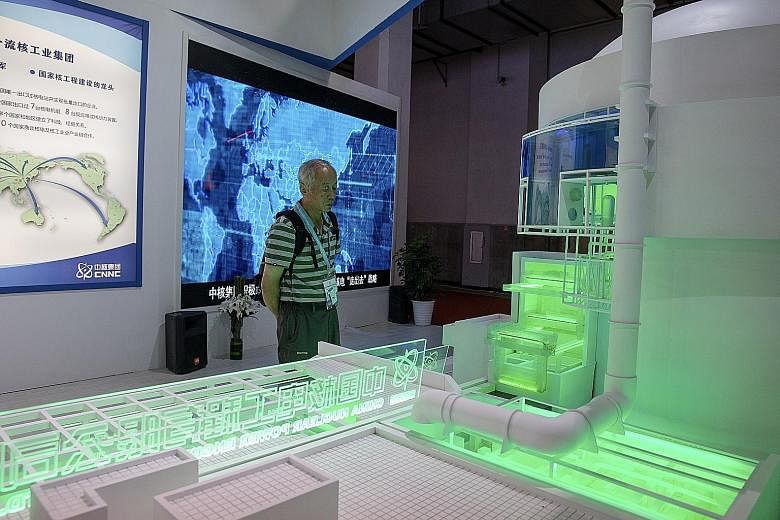WASHINGTON • The Trump administration has announced it would sharply restrict exports of civilian nuclear technology to China that officials claimed was being diverted to power new generations of Chinese submarines, aircraft carriers and floating nuclear power plants.
The announcement on Thursday mixed security warnings with long-standing complaints that Beijing was continuing to steal nuclear-related technology from US companies to benefit Chinese state-owned companies.
In a call with reporters, however, administration officials revealed little of the intelligence evidence they said would back up their claims.
The move appeared to be part of a more concerted effort by the administration to put new pressure on China beyond the tariffs US President Donald Trump has announced on Chinese goods.
On Wednesday, the Trump administration said it would impose a new review system on foreign investments to prevent adversaries - chiefly China - from obtaining new technology by taking minority stakes in US companies or starting joint ventures here.
Also on Wednesday, the Justice Department announced the arrest of a Chinese intelligence officer who was charged with stealing secret information from GE Aviation, one of the largest suppliers of jet engines.
China has been an established nuclear weapons state since the early 1960s. While the Trump administration said it was acting to halt proliferation, the reality is that China is largely self-sufficient when it comes to developing nuclear weapons.
The restrictions announced on Thursday appeared largely aimed at fears that advanced reactors, especially compact power plants that could fuel China's ambitions to project power, would speed up the emergence of the Chinese military as a force with global reach.
The administration officials, who briefed journalists on the condition of anonymity, said Beijing was looking in particular to develop floating nuclear power reactors for use in the South China Sea, where it is building military installations on reclaimed reefs.
China is not a major customer for US nuclear technology; only about US$170 million (S$234 million) in nuclear-related sales went to Chinese customers last year.
But the announcement on Thursday amounted to a significant setback in cooperative agreements that have had a chequered history since the Ronald Reagan administration.
The first openings, noted Mr Jeffrey A. Bader, senior Asia specialist on former president Barack Obama's National Security Council, came as an incentive to stop Chinese cooperation with Pakistan, which was building its first nuclear weapons. Trade stopped after the Tiananmen Square uprising of 1989, and the Bill Clinton administration had a major stand-off with the Chinese over their help to Iran.
But those issues were resolved, usually amid warnings from the US nuclear industry that failing to deal with China on nuclear issues was to open the way for France, Japan and South Korea to supply Beijing with nuclear technology.
NYTIMES

